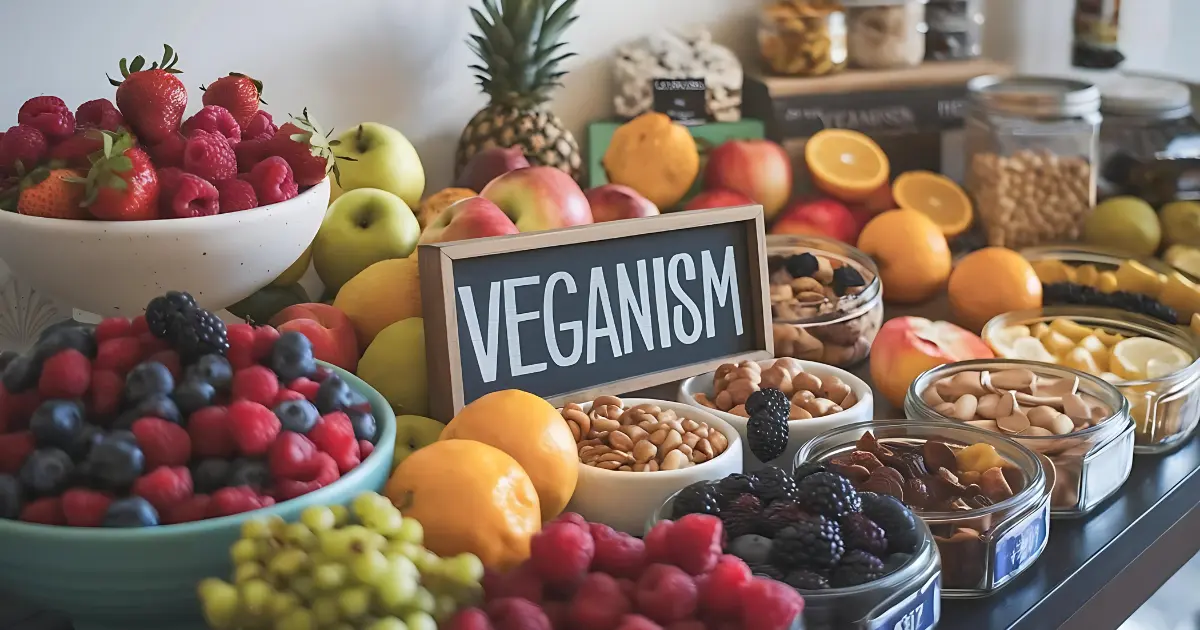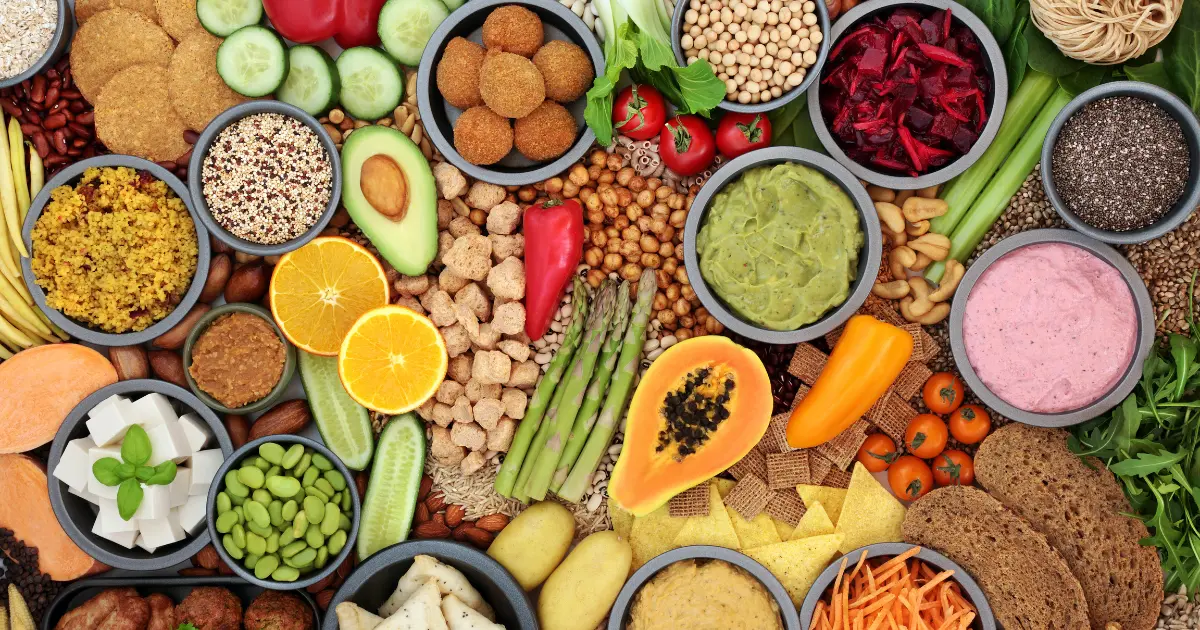Historical Context of Veganism
The word “vegan” was introduced in 1944 by Donald Watson, who co-founded the Vegan Society in the United Kingdom. While plant-based diets have existed for centuries across various cultures, the modern vegan movement specifically addresses ethical concerns related to using animals for human benefit. Consequently, veganism emerged as a response to industrial farming practices, animal cruelty, and growing recognition of environmental degradation caused by animal agriculture.
Importance of Understanding Veganism
Understanding veganism is crucial not only for those who wish to adopt the lifestyle but also for fostering broader societal awareness of ethical, environmental, and health issues. By exploring the concept of veganism, individuals can make informed decisions about their diet, lifestyle, and interactions with the planet.
Defining Veganism
Core Principles of Veganism
Veganism centers on minimizing harm to animals. This involves avoiding meat, dairy, eggs, and other animal products. For vegans, the use of animals for food, clothing, and entertainment is both unnecessary and exploitative. Additionally, veganism promotes sustainability by reducing reliance on industries that contribute to environmental degradation.
Ethical Considerations
Veganism supports animal rights rather than simply animal welfare. While animal welfare focuses on minimizing suffering, veganism advocates for complete abstention from animal exploitation. Furthermore, veganism opposes speciesism, which is the belief that humans are superior to other animals. This philosophy promotes equal consideration of animal lives. However, ethical dilemmas can arise when products contain hidden animal ingredients or when certain medications include animal-derived components. Nonetheless, minimizing harm remains the guiding principle for vegans.
Environmental Impact
Animal agriculture is a leading contributor to deforestation, greenhouse gas emissions, and excessive water consumption. By opting for a plant-based diet, vegans can significantly reduce their carbon footprint. Moreover, plant-based agriculture requires far less land than animal farming, enabling reforestation and aiding carbon sequestration. Reducing water consumption is another benefit, as a vegan diet conserves thousands of liters annually. In addition, by decreasing the demand for land for grazing and feed, veganism helps preserve biodiversity and prevent habitat destruction.
Health Benefits
A well-balanced vegan diet offers several health benefits. Research indicates that plant-based diets lower the risks of heart disease, high blood pressure, type 2 diabetes, and certain cancers. A diet rich in fruits, vegetables, whole grains, and legumes promotes longevity and provides essential nutrients. However, there are concerns about potential nutrient deficiencies, such as vitamin B12, iron, and zinc. These concerns can be addressed through fortified foods and supplements, which are key components of a well-rounded vegan diet.
Vegan Diet
Key Components of a Vegan Diet
A vegan diet consists of whole, plant-based foods such as fruits, vegetables, grains, nuts, seeds, and legumes. These foods are naturally rich in fiber, vitamins, and antioxidants, contributing to overall health and vitality. Additionally, plant-based alternatives like almond milk, tofu, and vegan cheeses are increasingly popular among vegans.
Nutrient-Rich Vegan Foods
Common nutrient-rich foods in a vegan diet include leafy greens such as kale and spinach, which are high in iron and calcium. Legumes like lentils and chickpeas are excellent sources of protein and fiber. Nuts and seeds, including chia, flax, and walnuts, provide omega-3 fatty acids, while whole grains like quinoa and brown rice offer complex carbohydrates and protein.
Challenges and Solutions for Maintaining a Balanced Vegan Diet
Maintaining a balanced vegan diet can present challenges, particularly in obtaining sufficient amounts of nutrients like vitamin B12, iron, and omega-3s. These nutrients, commonly found in animal products, can be acquired through fortified foods and supplements. Additionally, meal planning with variety helps ensure a balanced intake of proteins, healthy fats, and essential vitamins. Various resources, such as vegan meal plans, recipes, and nutrition apps, offer further guidance on maintaining a healthy diet.
Vegan Lifestyle
Beyond Food: Vegan Clothing, Cosmetics, and Household Products
Veganism extends beyond dietary choices. Many vegans avoid clothing made from animal-derived materials, including wool, silk, leather, and fur. Furthermore, they prefer cruelty-free cosmetics that are not tested on animals and exclude animal ingredients. Vegan-friendly household products, such as biodegradable cleaning supplies, also support ethical and environmentally conscious living.
Vegan Communities and Support Networks
The global vegan community continues to grow, providing resources, support, and education for those interested in the lifestyle. Social media platforms, online forums, and local groups offer spaces for vegans to connect, share experiences, and encourage others. Consequently, these communities play a crucial role in spreading awareness and fostering compassion.
The Role of Education and Awareness in Promoting Veganism
Education is key to promoting veganism. Documentaries like Cowspiracy and What the Health have raised awareness about the realities of animal farming and the benefits of plant-based living. Blogs, books, and workshops offer further insights into how veganism aligns with individual values and encourages sustainable choices.
Common Misconceptions About Veganism
Addressing Stereotypes and Myths
A common misconception is that vegans do not consume enough protein. However, protein-rich plant foods such as beans, lentils, tofu, and quinoa easily meet daily requirements. Another myth suggests that veganism is expensive. While some specialty products may be costly, a whole-foods vegan diet is often more affordable than one reliant on meat and dairy.
Dispelling Misconceptions About Veganism
Veganism is frequently misunderstood as a restrictive diet. However, it offers a wide variety of flavors and food options. Additionally, many perceive transitioning to a vegan lifestyle as challenging. In reality, with the rise of plant-based alternatives and growing awareness, adopting a vegan lifestyle is now more accessible than ever.
Veganism is an all-encompassing lifestyle that extends beyond diet, addressing ethical, environmental, and health-related issues. By choosing plant-based foods and cruelty-free products, vegans reduce their environmental impact and promote compassion. As global environmental awareness increases, the vegan movement continues to expand. Innovations in plant-based foods, such as lab-grown meat and vegan cheeses, make the lifestyle more accessible. Veganism is also aligning with other social and environmental movements, advocating for sustainable, cruelty-free living on a broader scale.
Additional Resources
For those looking to explore veganism further, websites like Veganuary, The Vegan Society, and PETA provide resources on transitioning to a vegan lifestyle. Additionally, local vegan communities, restaurants, and social media groups offer valuable support.







